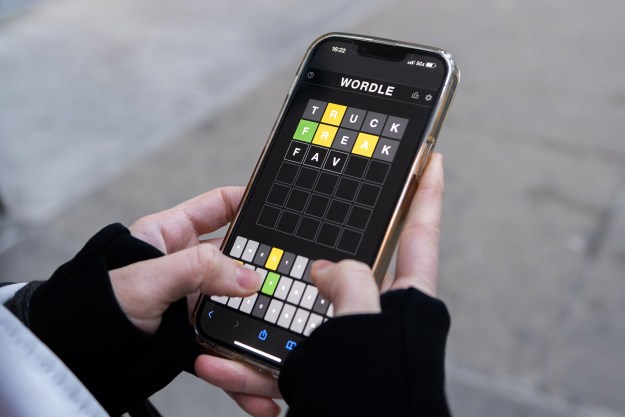We have the solution to Wordle on June 2, as well as some helpful hints to help you figure out the answer yourself, right here. We’ve placed the answer at the bottom of the page, so we don’t ruin the surprise before you’ve had a chance to work through the clues. So let’s dive in, starting with a reminder of yesterday’s answer.
Yesterday’s Wordle answer
Let’s start by first reminding ourselves of yesterday’s Wordle answer for those new to the game or who don’t play it daily, which was “BASIN.” So we can say that the Wordle answer today definitely isn’t that. Now, with that in mind, perhaps take another stab at it using one of these Wordle starting words and circle back if you have no luck.
Hints for today’s Wordle
Still can’t figure it out? We have today’s Wordle answer right here, below. But first, one more thing: Let’s take a look at three hints that could help you find the solution, without giving it away, so there’s no need to feel guilty about keeping your streak alive — you put in some work, after all! Or just keep scrolling for the answer.
- Today’s Wordle includes the letter B.
- Today’s Wordle uses two vowels.
- Today’s Wordle is often used as an exclamation to show approval or praise.

Today’s Wordle answer
No luck? Don’t sweat it — you can’t get them all! If you just want to see today’s Wordle answer to continue your streak, you can find it below.
The answer to today’s Wordle is …
BRAVO
Today’s Wordle definition
And here’s what it means, according to our good friend ChatGPT:
Tips for tomorrow’s Wordle
It might seem like Wordle is all luck, but there are a few good practices you can use to help get as many clues as possible in just a few guesses, making it that much more likely you can figure out the final word before you run out of tries. The most important guess is your first, and the trick is to load up on vowels (A, E, I, O, and U).
Some popular starting words people have had good luck with are “adieu,” “media,” “arise,” and “radio.” Just make sure not to pick a word with double letters, or you’re wasting precious guesses. The aim here is to try to figure out which vowels the mystery word contains, then layer in common consonants and close in from there.
Your second word, assuming that the first one gave you a good jumping-off point, should begin to lean more heavily on common consonants like R, S, and T. More good ones here we’ve seen are “stern,” “irate,” and “atone.” You never want to reuse any letters from a prior round that showed up as gray — you know they aren’t in the word.
Now that’s all solved and the definition is taken care of, and you’re armed with some tips to crush tomorrow’s Wordle, here are some games like Wordle you can try today.
Editors' Recommendations
- NYT Mini Crossword today: puzzle answers for Monday, June 3
- NYT Strands today: hints, spangram and answers for Sunday, June 2
- NYT Spelling Bee: answers for Friday, May 10
- If you love Wordle and Connections, Puzzmo may be your next daily obsession
- Wordle’s wild year: New York Times breaks down the phenomenon’s big 2022


